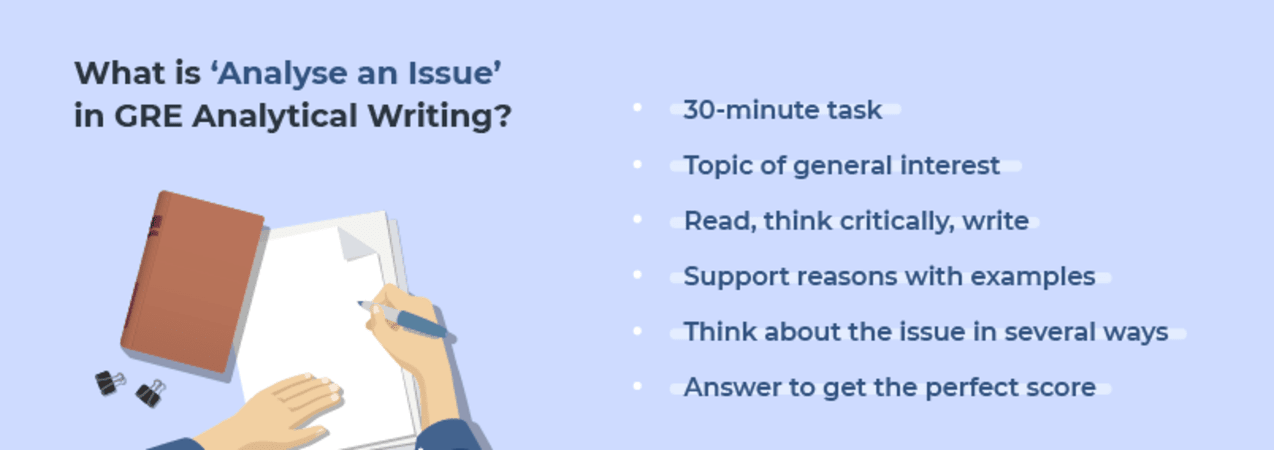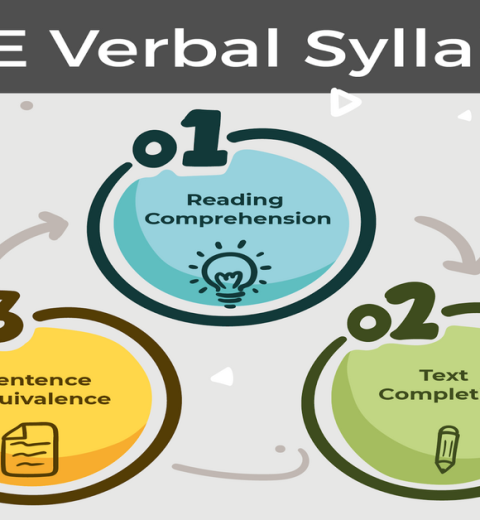The GRE Analytical Writing section assesses your critical thinking and analytical writing skills, not your knowledge of a specific subject. It’s your chance to showcase your ability to develop a cogent argument and support it with evidence. Here’s a deep dive into what you’ll encounter:
Task Types:
You’ll face two separately timed writing tasks, each focusing on a different aspect of analytical writing:
- Analyze an Issue: This task presents a statement or opinion on a topic. You’ll need to take a stance (agree, disagree, or somewhere in between) and justify your position with clear reasoning and relevant examples.
- Content Focus: Here, the content doesn’t matter. The task assesses how well you can develop and support an argument regardless of the specific topic.
- Strategies: Focus on constructing a strong thesis statement that clearly outlines your position. Back it up with well-explained reasons and relevant examples. Consider potential counterarguments and address them to demonstrate a balanced perspective.
- Analyze an Argument: This task presents a written argument on a particular issue. You’ll need to evaluate its logical soundness, not necessarily agree or disagree with its conclusion.
- Content Focus: Here, you analyze the structure and reasoning of the argument itself. Is the evidence relevant and sufficient? Are there any logical fallacies or gaps in the reasoning?
- Strategies: Identify the argument’s conclusion and the reasons provided to support it. Evaluate the strength of the evidence and the logic used. Look for potential weaknesses like faulty assumptions, unsupported claims, or missing information.
Evaluation Criteria:
Your essays will be evaluated based on several key criteria:
- Analysis: How well do you understand the issue or argument presented?
- Reasoning: Is your argument well-structured and logically sound?
- Support: Do you use relevant and convincing evidence to support your claims?
- Writing Skills: Do you demonstrate clear and concise writing with proper grammar and mechanics?
Additional Tips:
- Practice brainstorming techniques to develop strong arguments and relevant examples.
- Maintain a formal writing style with proper grammar and sentence structure.
- Manage your time effectively. Allocate enough time for planning, writing, and proofreading.
- Utilize a thesaurus to enhance your vocabulary and avoid repetitive language.



